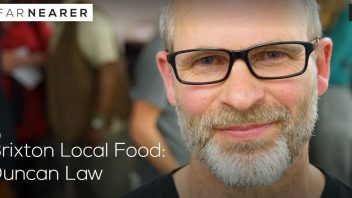Why transition to a new local economy?

If we are to lead economic transition in our communities, we need to be able to articulate the problems and the potential solutions in an inspiring, convincing way. Here are some great examples of ways to tell this story…
The challenges
The way our economy works today is placing a huge strain on the global supply of natural resources, which reduces the availability and ultimately increases the costs of energy, raw materials and manufactured goods, with major implications not just for business but also for social justice and quality of life. Some countries, and some social groups, are more powerfully placed to secure resources for themselves than others.
As the economic landscape around us changes rapidly, our vulnerabilities become clear. If our local economy is heavily dependent on fossil fuels for its basic needs, in the current era where the price of energy could go anywhere, that is a key vulnerability. If it is deeply in debt, or needs to go deeper into debt in order to maintain its basic functions, that debt is a key vulnerability. If the warming climate means that the risk from flooding or other natural disasters is increasing, that is a key vulnerability. If local, community-owned businesses which contribute to the resilience of the economy are threatened by large chain businesses which threaten to undercut them and extract profits to distant shareholders, that is a key vulnerability.
The Transition movement seeks to meet these challenges, and to turn these vulnerabilities into a new form of economic development by bringing fresh thinking, creativity and entrepreneurship, supporting the development of new kinds of local economies, and building local infrastructure that helps communities become more resilient, sustainable and equitable. This includes transforming existing organisations and businesses and creating new enterprises and livelihoods that offer greater equality of opportunity, so that all people can enjoy wellbeing and a good quality of life.
This brief video below from the post carbon institute is a really useful summary of the challenges we face…
The Transition response
Here’s an example of how Rob Hopkins (the co-founder and main communicator about Transition) articulates the story of Transition as a solution. It’s a recent economics-focused presentation given at Tufts University, USA which uses imagery from the TN infographic and international examples (he starts at 15 mins in, runs for about 25 mins then Q&A):
The first chapter of Rob’s latest book, the Power of Just Doing Stuff, also lays out a more detailed version of the story.
Here’s a short 10 minute summary of REconomy in particular, as presented by Fiona Ward (initiator of the REconomy Project) at a panel discussion in Bristol. She starts at 5:27 if you want to miss Jonathon Porritt’s intro:
And one more from Rob, as presented at TEDx in Exeter, talking about Totnes in particular as an example of the Transition response:







Connect